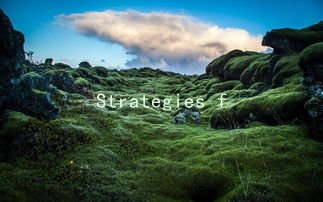Decoding Desire: The Psychology Behind Effective Romantic Techniques
Decoding Desire: The Psychology Behind Effective Romantic Techniques
In the intricate dance of love and attraction, understanding the psychology behind romantic techniques can transform casual encounters into meaningful connections. Relationships, whether they flourish or falter, often hinge on basic human psychology. Here, we explore various strategies rooted in psychological principles that can enhance romantic interactions and deepen emotional bonds.
One of the most fundamental elements of attraction is the principle of reciprocity. Humans are inherently social beings, and we tend to feel a stronger connection to those who show interest in us. When engaging in romantic conversations, mirroring the other persons language and emotions creates an implicit bond. For instance, if your partner expresses excitement about a hobby, responding with enthusiasm and asking insightful questions reinforces their feelings and fosters intimacy. The act of reciprocating emotions not only validates the other persons feelings but also creates a shared experience that strengthens the connection.
Another key technique is the art of vulnerability. Sharing personal stories and emotions can dissolve barriers and promote a sense of closeness. When you open up about your experiences, fears, and aspirations, it invites your partner to do the same. This mutual sharing cultivates trust and deepens the emotional fabric of your relationship. Studies suggest that vulnerability helps to enhance perceived attractiveness, making partners feel more connected and invested in each other.
Effective communication is also paramount in romantic relationships. Its essential to express appreciation and affection genuinely. Compliments, when offered sincerely, can amplify feelings of self-worth and intimacy. For example, commenting on your partners positive traits or actions not only boosts their confidence but also reinforces your bond. Employing I statements—such as I feel loved when you…—instead of blaming or accusatory language creates a more understanding atmosphere and prevents defensiveness.

Further, introducing playful banter and humor can be an effective romantic strategy. The psychological benefits of laughter are well-documented; it releases endorphins and creates a sense of well-being. Sharing jokes and light-hearted moments fosters a carefree environment, enabling partners to enjoy each others company without the weight of serious issues. This playful interaction can also be a form of emotional regulation, helping couples navigate challenging discussions more effectively.
Moreover, understanding attachment theory can greatly influence your romantic endeavors. People typically fall into one of three attachment styles: secure, anxious, or avoidant. Recognizing your own style and that of your partner can help tailor your approach to meet each others emotional needs. For instance, individuals with secure attachment styles thrive on emotional closeness and trust, while those with anxious or avoidant tendencies may require more reassurance or space. Tailoring your romantic techniques to accommodate these needs can significantly enhance relationship satisfaction.
Lastly, cultivating a growth mindset in relationships encourages both partners to view challenges as opportunities for growth rather than insurmountable obstacles. Emphasizing teamwork and collaboration promotes a shared vision, strengthening the partnership through adversity. This perspective fosters resilience and adaptability, key components of lasting relationships.
In conclusion, effectively navigating the realm of romance involves more than merely saying the right words. By leveraging psychological principles such as reciprocity, vulnerability, and effective communication, individuals can create a deeper, more meaningful connection with their partners. Understanding attachment styles and cultivating a growth mindset further enrich this relational landscape. Ultimately, romance is a dance of connection, and understanding the underlying psychology can help us master the steps.





